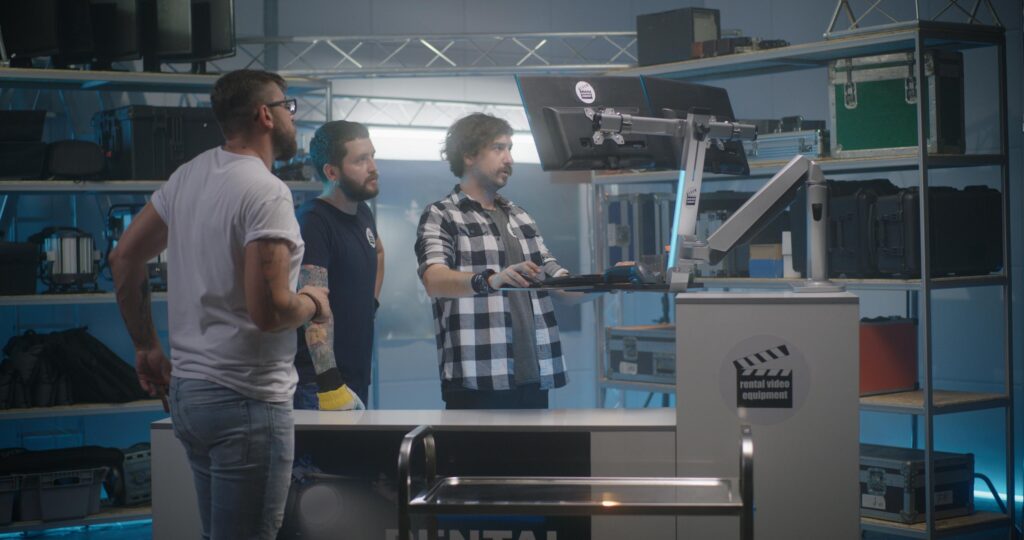I have been a professional videographer for more than 6 years now. However, one of the most challenging tasks, even after the time spent in the industry, is charging for the video production services. I am not alone, this is something many other videographers struggle with. The main reason for this problem is that that every project differs in production complexity as well as final render requirements. There simply is no streamline formula that would help a videographer to price for their services.
Package Deals Offered by Videographers
Many attempts have been made in the video production service industry to create streamline forms of pricing. Most common pricing, adopted from portraits photographers, are packages. This was very common in the days of prints, where a portrait photographer would offer a package deal. For example, photogrpahers would offer packages with a set of prints in various sizes, and the session fee would be included in this rate. This model was adopted most often by wedding videographers. Often, a package deal was offered where the couple would receive a highlight video, and a longer video all for one price. In this context this form of pricing is effective. To be flexible, most videographers would add additional fees for larger weddings, additional video renders, or special requests like drone shots. However, a package does not work in corporate video production setting. The main reason for this dilemma is the highly modular needs by most corporate clients. Companies often require specific renders of the videos. Some corporate clients might need short videos for social media, some will need interviews, some will need high quality videos for large displays at conferences. In addition, each corporate video production is different. A videographer may be working with one dental clinic with one dentist and then work with another clinic that has several locations and dentists, or even client testimonials. Hence, in such context packages do not work and a videographer needs to figure a custom method of pricing for video production services.
Billing per Edited Minute for Video Production Services
Another popular method for billing for video production services in the past has been a fee per a minute of edited video. So If the video was 3 minutes long, and the rate per 1 minute edited video was $1000, the total rate for the video production serivce was billed for $3000. However, this method once again does not work for much of corporate video production. A videographer can spend 4-5 hours filming an event, and from the footage he/she may cut an engaging highlight video that may take him/her 3 hours to edit. On the other hand, a corporate client may want to film a speech that takes 10 minutes. With the set up and light edit the entire project may take say 1-2 hours to produce . It is not reasonable then to charge 10 times more for such work. In addition, if videographer bills per edited minute, he/she will be motivated to stretch the duration of videos unnecessarily. Moreover, today corporate video production requires shorter and shorter videos that have an ephemeral existence on most social media platforms.
Charging per hour for Video Production Services
One simple method for pricing video production services is simply billing according to an hourly rate. This is common for lawyers who are compensated by the amount of work they put into the project. As a videographer, I have implemented hourly rate mostly during the video post production. I take a look at a project and estimate how long it would take me to edit. After all, I would be using the same space, computer, and mostly same set of software applications. However, even here there are challenges. Some work requires more visual effects. This work not only is more time consuming but often requires research of useful techniques, not to mention the time to develop these post production skills over time. Therefore, I often charge extra fee for complex VFX, even if it does not take me much more time.
The hourly rate, however useful in post production realm, it really falls apart for pricing filming production, given that most projects differ in their complexities. I have shot some projects as a sole videographer, with limited gear, say shoulder rig and a gimbal. However, I have worked on production sets on which we had a good amount of gear, lighting, and as a result, a bigger crew. A videographer may own majority of his/her gear, and therefore no additional cost is incurred when gear requirements differ. However, the gear is expensive and therefore a videographer needs to consider its depreciation value as he/she is using for video production services.
Charging Equivalent Rental Rate
This method is often employed by larger video and film productions. In fact, very often production companies may not even own their gear, and in such instances all gear is rented and the cost included in the project budget. However, even when a videographer owns his/her gear, an effective method of pricing is to charge what it would cost if the gear were rented. This rental fee would be added to the fee one would charge for his/her time. One can think of this method as if the videographer is earning a fee and so is his/her the gear separately.

My Hybrid Approach to Pricing Video Production Services
As I have mentioned earlier, no one method will work well for every videographer. First, I think every videographer should have a minimum fee they are willing to film for. We the videographers often hear potential clients explain they only need very short video, less than a minute, it will only take few hours to produce. We all have heard this before and we end up doing much more work than agreed. Hence, I always say I have a minimum even if I come out and take one picture. A minimum always serves as a filter and eliminates leads that are not serious paying fee. If potential client is not willing to pay a fair rate, you can still be polite and suggest he/she use her phone camera or hire a student in training. Recently, I had a musician asking me to make a lyric video. I did not really know what a lyrics video was, but after she has shown me some example I told her that is something she can do on her own, I even spent few minutes giving her free tips. No videographer will gain anything by being rude.
If I was primerly an event/wedding videographer I would consider packages. However, I currently only shoot 2-3 wedding per year. Hence, I come up with custom rate for all my projects. First, I have a set fee that I charge for full day or half day production. If it is half hour production its half day. If video production is over 4 hours, its a full day rate. I then charge additional fee if I need assistants, or if I do need rent any gear. At this point, I own majority of gear I use but for this larger video production projects I can scale up with rental and crew.
The post production I do approach from an hourly rate. I can often predict how much each edit will take me. I then add additional fee for special graphics, essentially increasing my post production hourly rate. This type of practice is well accepted within the corporate world. Many professionals charge not based how long the service takes to provide but rather what is the value of a service. For example, a doctors performing procedures can charge several thousands and then spend hours at a lower rate checking on their patients, checking post procedure charts and so on. Same applies to the business of video production service. We also spend years fine tuning our craft, and so its ok to charge accordingly.
Lastly, it is always helpful to break down the total budget for the client. Some clients might be shocked to see a single rate of say $3k for a vide that might be in the end a 1-2 minute video render. However, if you break down for the client rate for full day production, fee for an assistant, rental gear, travel costs, post production edits, VFX, logos placements, and audio mixing, the $3k rate might appear tot he client as a bargain.

Hi,
I am new to the biz. Does it make sense to post your rights for video production on your site or other advertising materials?
Hi Jose. This is a great question. As a videographer you do have that choice to be transparent about your video productions rates. I had a conversation with a colleague videographer who said ever since he posted his rates on his website his leads diminished but the quality of his leads were better. In other words, he reduced the amount of leads who were not willing to pay his desired rate. Hence, posting your rates filtered his video production leads. However, this videographer has a very narrow scope of work. This video production professional is mainly a director of photography and furthermore he tends to focus mainly on music videos. He is able to stream his services and replicate so the rate will stay rather fixed. However, I advertise my self as a one stop shop for all video productions (and sometimes photo) needs. My services, therefore, vary from project to project. It is very difficult to describe on my website what the video production services will cost. I have my templates that I use, but I estimate each project after I speak with a client. To filter my prospects I may lead a conversation with a price range for previous work. For example, I often have musicians call me and start by asking how do I charge for a music video. I often replied that it may vary based on the level of video production but my past videos range from $1500-$4000. This immediately sets the tone for the conversation and once details of the production are discussed I give a client an estimate. Another difficulty wit posting rates is in post production. You may say that an average highlight video will cost say $500 to edit. However one edit might very simple and another edit of the same length render may be composited from several days of video production, making it a much more involved project. Additionally, some video edits require graphics, and this can very consuming and may add much more cost to post video production. I guess one solution would be posting case studies for each specific project and listing budget for that video production project. I hope this helps Jose.